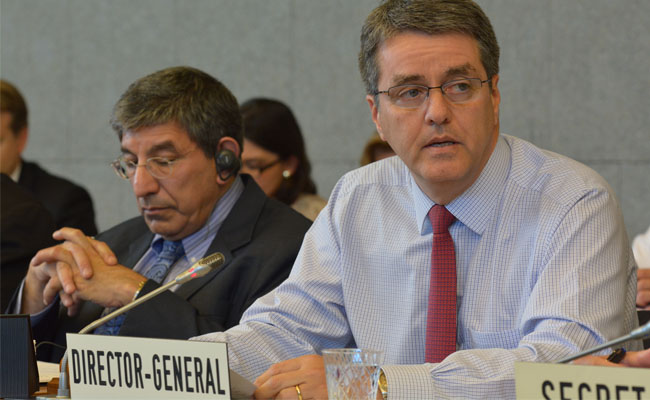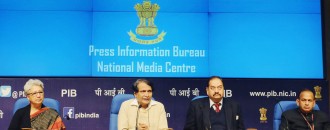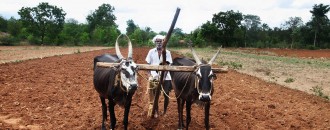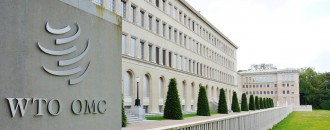
WTO launches intensive consultations on Trade Facilitation Agreement
The Dollar Business Bureau | @TheDollarBiz
 Multilateral trading system has strong support across the world, says WTO chief Roberto Azevêdo (Pic. source - WTO)
Multilateral trading system has strong support across the world, says WTO chief Roberto Azevêdo (Pic. source - WTO)Roberto Azevêdo, Director-General of the World Trade Organisation (WTO), has launched “intensive and comprehensive” consultations on taking the Bali Package forward which includes both Trade Facilitation Agreement (TFA) and concerns on food security raised by India. Members have been asked to report the outcome and in the Trade Negotiations Committee (TNC) on October 6, 2014. Azevêdo urged members not link TFA with other deals. He said, “There seems to be a clear interplay between concerns relating to the negotiations on public stockholding for food security purposes and the adoption of the protocol of amendment on the Trade Facilitation Agreement. However we know that strict parallelism is not possible. One negotiation [TFA] was concluded in the Bali package. The other negotiation was launched by the Bali package.” Emphasising the importance of the TFA, the WTO chief said, “We are in a very precarious position…and at present I am not sure that the scale of the risk is fully appreciated by all.” However, he added that WTO members should find a way of providing comfort for those with outstanding concerns on food security. The TFA, which aims to simplify global trade, was supposed to be adopted by WTO by July 31, 2014, but India refused to allow a consensus on it due to concerns over food security. India says that it is concerned that WTO members may not work towards a long-term solution on food security issues if it allows the TFA to be adopted. According to WTO rules, government support on food stockpiling is seen as trade distorting (Amber Box) and cannot exceed 10% of total value of food grains production. India and other G33 countries have been saying since 2012 that this will prevent India and over 20 other countries from running food programs for the poor. Such concerns were not addressed in the Bali Package. WTO said last year, “As the Bali conference approached, it became clear that amending the Agriculture Agreement on this point was too controversial to be agreed in time for the conference. Instead, chairperson John Adank, New Zealand’s ambassador, began working with members on an interim solution (which requires countries to prove that government subsidies are not trade distorting).” India says that there is ambiguity in the WTO proposal and seeks a change in WTO rules so that food subsidies are placed in the Green Box which does not place any limits for food subsidies. Recently, José Graziano da Silva, Director-General, FAO, said in New Delhi that “food security comes first and trade policies should be customised to guarantee it”.
This article was published on September 16, 2014.






 to success.
to success.